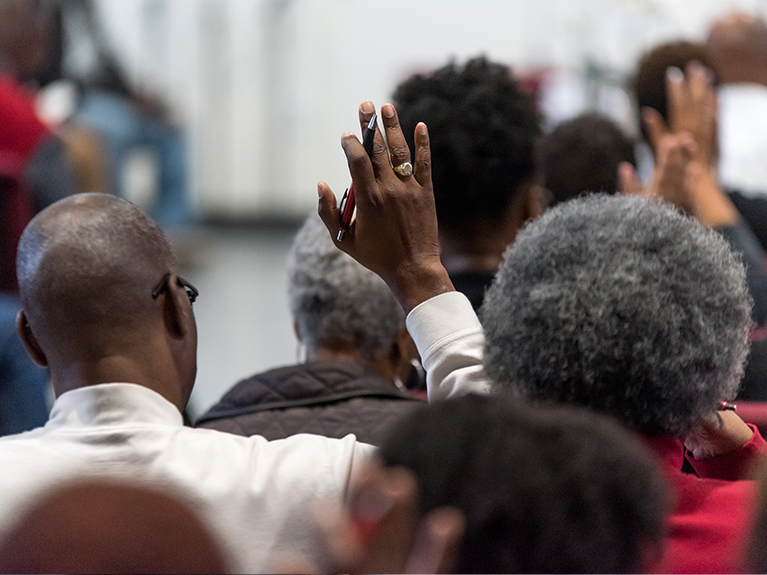Promoting Advance Care Planning Discussions in African American Faith Communities
 National Healthcare Decisions Day (NHDD), April 16, was honored and celebrated by hundreds of healthcare organizations, professionals, patients, caregivers, and faith communities with events and educational campaigns held across the country.
National Healthcare Decisions Day (NHDD), April 16, was honored and celebrated by hundreds of healthcare organizations, professionals, patients, caregivers, and faith communities with events and educational campaigns held across the country.
NHDD was founded in 2008 by Nathan Kottkamp, a Virginia-based healthcare lawyer, to provide clear, concise, and consistent information on healthcare decision-making to both the public and providers and institutions, through the widespread availability and dissemination of simple, free, and uniform tools to guide the process. Today, The Conversation Project, serves as the backbone for National Healthcare Decisions Day and provides tools for healthcare professionals, community members, and clergy members.
A national survey by The Conversation Project found that while 92% of Americans say it’s important to discuss their wishes for end-of-life care, only 32% have had such a conversation. 95% of Americans say they would be willing to talk about their wishes, and 53% even say they would be relieved to discuss it. Despite these statistics, there are disparities among African Americans as it relates to advance care planning conversations. Historically, health inequities, racism, and a lack of trust in the medical professions have been cited as primary reasons.
Over the past two years, while conducting advance care planning (ACP) workshops in African American faith communities, many have shared that they avoid having these discussions due to cultural and spiritual beliefs regarding death and dying. Many believe that beginning early conversations regarding death and dying preferences may activate the dying process sooner for their loved ones or that during their illness talk of death and dying may cancel out their expectation of experiencing “complete healing” or a “miracle for their loved one” or even the inability for their loved one to receive needed treatment.
Despite these barriers and concerns, advance care planning promotion, education and training, and acceptance are growing among African American faith communities across the country. Successful advance care planning promotion and training strategies should include but not be limited to the following:
- Initial and ongoing engagement with spiritual leaderse., who have influence with their congregations paves the way for authentic and trusting relationships with the members of faith communities.
- Demonstrating and incorporating spiritual principles in the training curriculum that align with their faith beliefs and affirms the evidence of advance care planning in the Bible.
- Utilizing a culturally and spiritually competent train-the-trainer approach to ensure sustainability of ongoing advance care planning education.
- Provide opportunities for participants to “share stories” of caregiving situations and conversations with their loved ones.
- Provide initial funding to support the establishment of trained ACP facilitators in the local church and ACP training materials including access to state Advance Directive forms.
This growing momentum of advance care planning in African American churches was initiated and has been sustained so far by philanthropic support. Foundations such as The John and Wauna Harman Foundation, The Rita and Alex Hillman Foundation, the Duke Endowment, the Arthur Vining Davis Foundations, The North Carolins Licensed to Give Trust Fund, the BCBS SC Foundation, and others have embraced the mission of eliminating the health disparities by providing funding to engage African American faith communities at the grassroots level. Faith and medicine do not have to be siloed. If we are to embrace the merits of person-centered care, we cannot forgo and separate the spiritual and cultural beliefs of our community members. In every arena, we must endeavor to grow, seek to understand , build lasting partnerships, and walk the serious illness care journey together.


